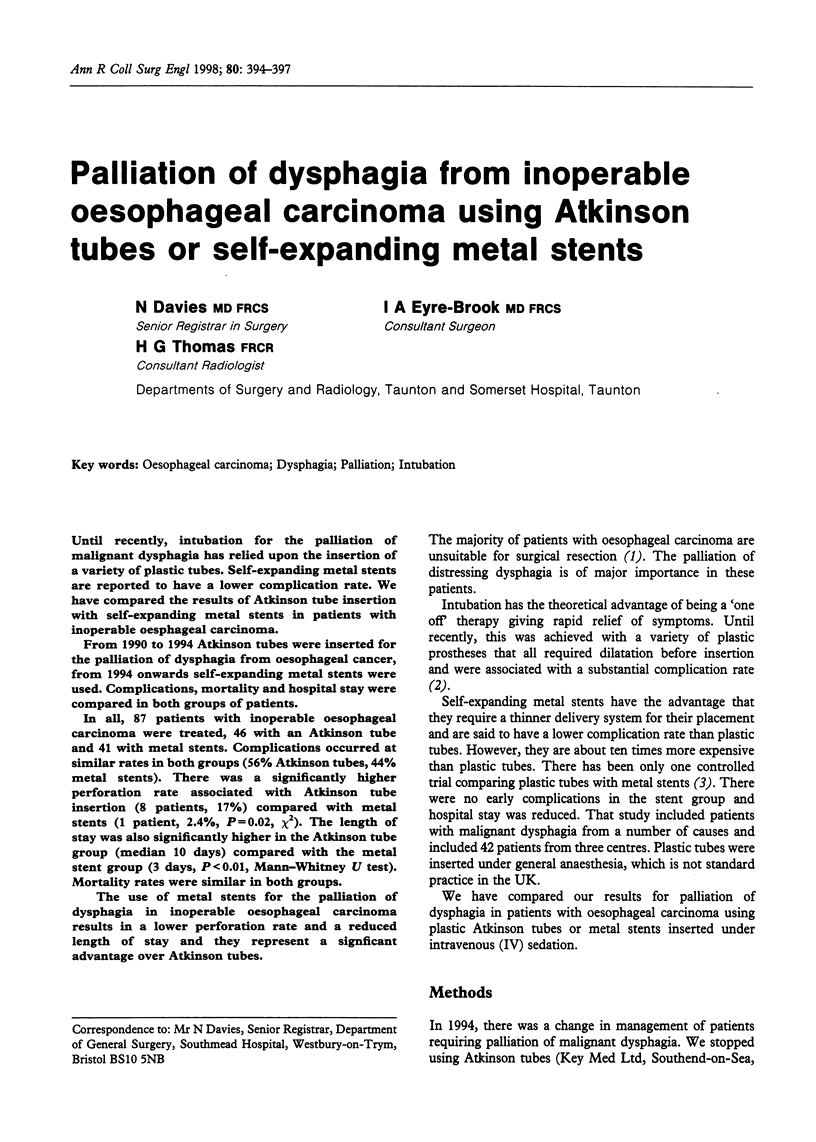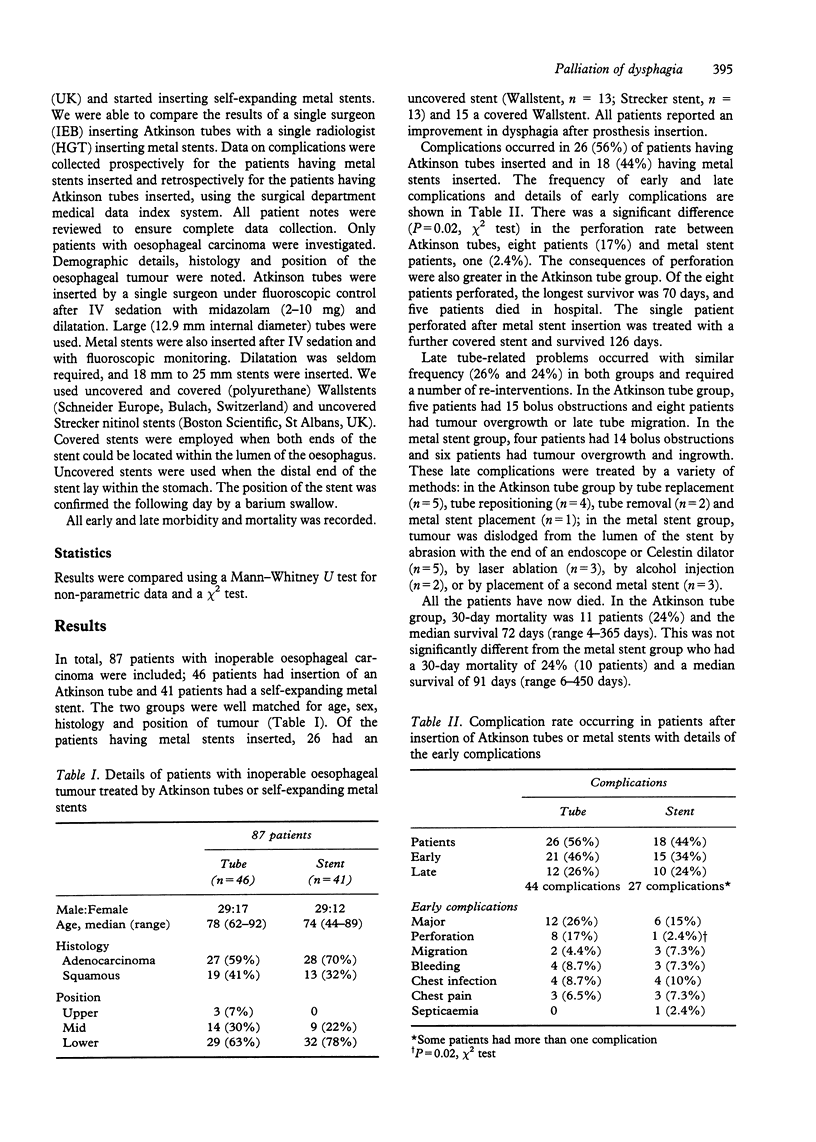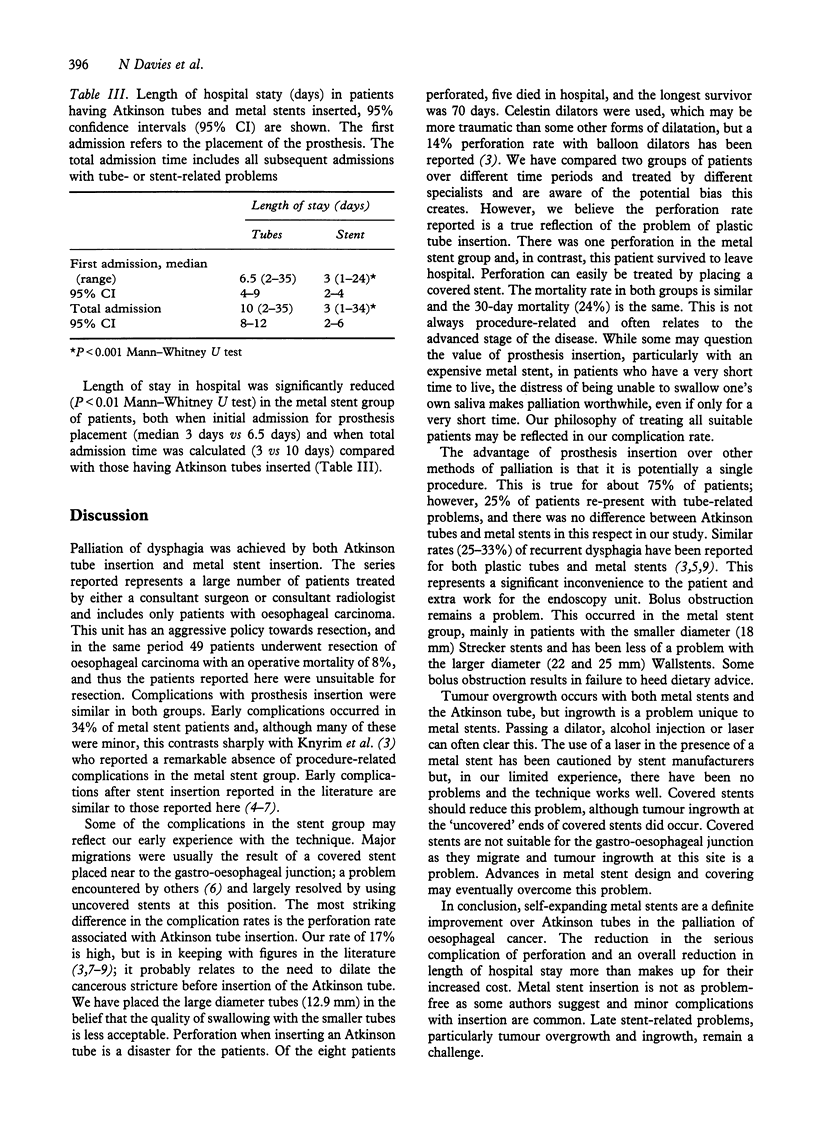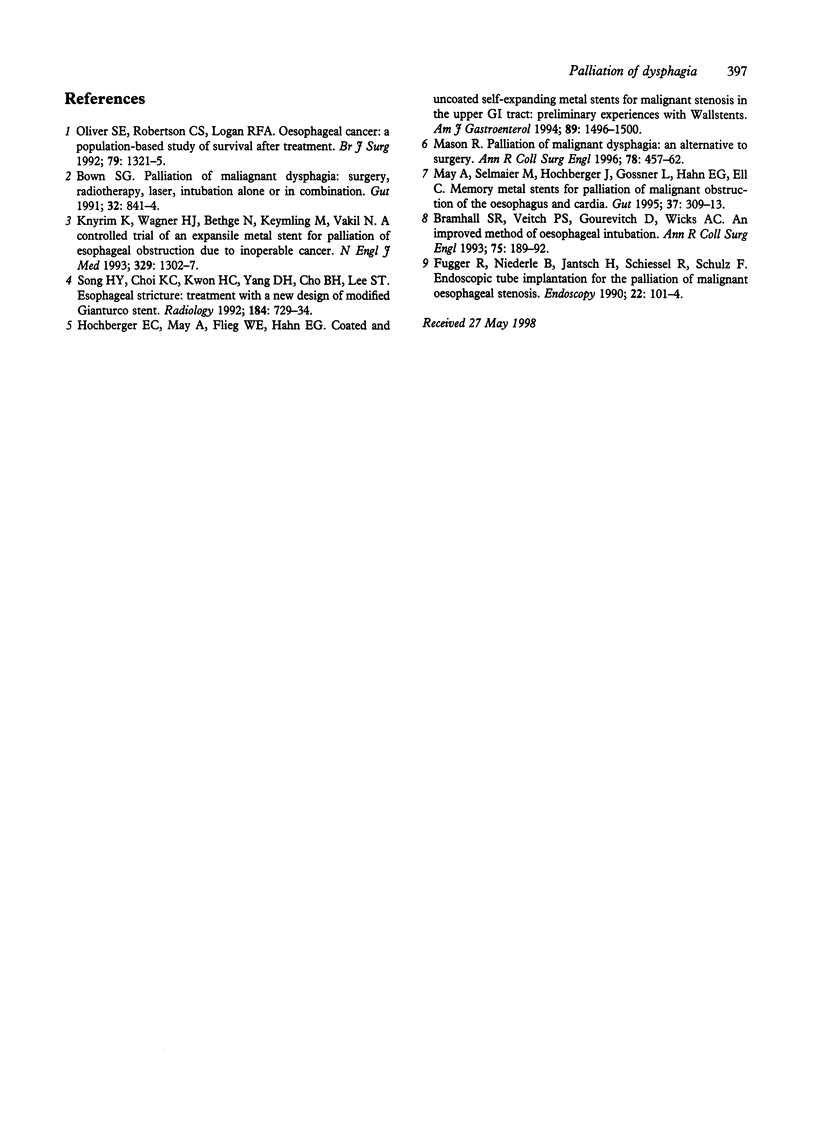Abstract
Until recently, intubation for the palliation of malignant dysphagia has relied upon the insertion of a variety of plastic tubes. Self-expanding metal stents are reported to have a lower complication rate. We have compared the results of Atkinson tube insertion with self-expanding metal stents in patients with inoperable oesophageal carcinoma. From 1990 to 1994 Atkinson tubes were inserted for the palliation of dysphagia from oesophageal cancer, from 1994 onwards self-expanding metal stents were used. Complications, mortality and hospital stay were compared in both groups of patients. In all, 87 patients with inoperable oesophageal carcinoma were treated, 46 with an Atkinson tube and 41 with metal stents. Complications occurred at similar rates in both groups (56% Atkinson tubes, 44% metal stents). There was a significantly higher perforation rate associated with Atkinson tube insertion (8 patients, 17%) compared with metal stents (1 patient, 2.4%, P = 0.02, chi 2). The length of stay was also significantly higher in the Atkinson tube group (median 10 days) compared with the metal stent group (3 days, P < 0.01, Mann-Whitney U test). Mortality rates were similar in both groups. The use of metal stents for the palliation of dysphagia in inoperable oesophageal carcinoma results in a lower perforation rate and a reduced length of stay and they represent a significant advantage over Atkinson tubes.
Full text
PDF



Selected References
These references are in PubMed. This may not be the complete list of references from this article.
- Bown S. G. Palliation of malignant dysphagia: surgery, radiotherapy, laser, intubation alone or in combination? Gut. 1991 Aug;32(8):841–844. doi: 10.1136/gut.32.8.841. [DOI] [PMC free article] [PubMed] [Google Scholar]
- Bramhall S. R., Veitch P. S., Gourevitch D., Wicks A. C. An improved method for oesophageal intubation. Ann R Coll Surg Engl. 1993 May;75(3):189–192. [PMC free article] [PubMed] [Google Scholar]
- Ell C., Hochberger J., May A., Fleig W. E., Hahn E. G. Coated and uncoated self-expanding metal stents for malignant stenosis in the upper GI tract: preliminary clinical experiences with Wallstents. Am J Gastroenterol. 1994 Sep;89(9):1496–1500. [PubMed] [Google Scholar]
- Függer R., Niederle B., Jantsch H., Schiessel R., Schulz F. Endoscopic tube implantation for the palliation of malignant esophageal stenosis. Endoscopy. 1990 May;22(3):101–104. doi: 10.1055/s-2007-1012811. [DOI] [PubMed] [Google Scholar]
- Knyrim K., Wagner H. J., Bethge N., Keymling M., Vakil N. A controlled trial of an expansile metal stent for palliation of esophageal obstruction due to inoperable cancer. N Engl J Med. 1993 Oct 28;329(18):1302–1307. doi: 10.1056/NEJM199310283291803. [DOI] [PubMed] [Google Scholar]
- Mason R. Palliation of malignant dysphagia: an alternative to surgery. Ann R Coll Surg Engl. 1996 Sep;78(5):457–462. [PMC free article] [PubMed] [Google Scholar]
- May A., Selmaier M., Hochberger J., Gossner L., Mühldorfer S., Hahn E. G., Ell C. Memory metal stents for palliation of malignant obstruction of the oesophagus and cardia. Gut. 1995 Sep;37(3):309–313. doi: 10.1136/gut.37.3.309. [DOI] [PMC free article] [PubMed] [Google Scholar]
- Oliver S. E., Robertson C. S., Logan R. F. Oesophageal cancer: a population-based study of survival after treatment. Br J Surg. 1992 Dec;79(12):1321–1325. doi: 10.1002/bjs.1800791226. [DOI] [PubMed] [Google Scholar]
- Song H. Y., Choi K. C., Kwon H. C., Yang D. H., Cho B. H., Lee S. T. Esophageal strictures: treatment with a new design of modified Gianturco stent. Work in progress. Radiology. 1992 Sep;184(3):729–734. doi: 10.1148/radiology.184.3.1509057. [DOI] [PubMed] [Google Scholar]


